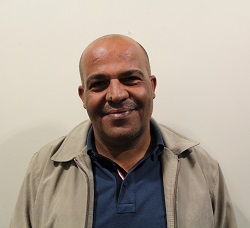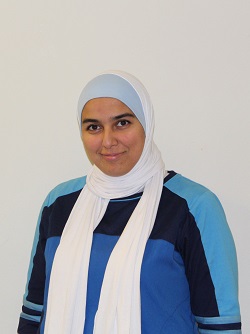By Mohamed Hassan and Lene Froslev - photos by Mohamed Hassan
Higher wages, deeper understanding of trade unions and increased self-confidence were the concrete results for shop stewards who learned about workers’ rights and social dialogue. The workshops further resulted in the signing of a new collective bargaining agreement, dozens of new trade union members and increased awareness.
A total of 86 leaders from the General Federation of Jordanian Trade Unions (GFJTU) attended workshops on workers’ rights and social dialogue. A dozen workers also attended parallel local workshops, at which they learned about their rights at work.
Ahmed Al Ryati, a 46-year old shop steward at the water utility company in the port city of Aqaba, was among them. With the knowledge acquired from the training sessions, he and his co-workers managed to secure the company’s first collective bargaining agreement.
The signing of the collective bargaining agreement resulted in significant improvements for the company’s 450 employees. It led to immediate promotions and salary increases for almost half of them. All employees will get a promotion every fifth year accompanied by a 5 percent salary increase. In addition, all the employees will receive a housing allowance and one extra month’s salary as a bonus per year.
“I have learned to engage in social dialogue and how to bargain with the board. We now have a better relation to the board, and we have managed to deal with the workers’ problems as strategic partners instead of counterparts,” says Ahmed Al Ryati.
Knowledge increases the member base

After having participated in the workshops, Ahmed Al Ryati shared his knowledge with a dozen of his co-workers at a local training at the water utility company in Aqaba. Here, many new employees learned about their rights and of the importance of trade union membership. By the end of the workshop, they had all become members of the trade union.
Empowerment
A number of other participants tell similar stories. Some of the female unionists tell of how the knowledge they gained and the tangible results they witnessed resulted in an increased sense of agency.
 “In the past, women mostly remained in the background and were not interested in trade union work. This has now changed with the local workshops at workplaces, and both my female colleagues and I have become aware that we as women are capable of participating actively in trade union work,” says Manal Khrisa. At 31 years of age, she is one of the youngest members of the General Trade Union for Electricity Workers.
“In the past, women mostly remained in the background and were not interested in trade union work. This has now changed with the local workshops at workplaces, and both my female colleagues and I have become aware that we as women are capable of participating actively in trade union work,” says Manal Khrisa. At 31 years of age, she is one of the youngest members of the General Trade Union for Electricity Workers.
Randa Al-Khaldi is also focusing on women’s trade union rights.
“I want to ensure that women workers know about their rights and encourage more women to achieve leadership positions within trade unions,” she says.
The workshop participants were asked to identify the most important issues in the Jordanian labour market right now. Their answers were unequivocal: a minimum wage that is too low and a rate of unemployment that is too high.
Currently, the Jordanian minimum wage is about 255 euros a month. The unemployment rate is 13 percent.


